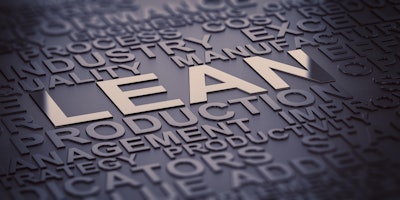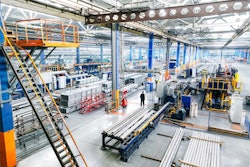
Modern businesses are faced with new challenges every day. From ever-changing consumer behavior and geopolitical factors impacting bottom line costs and supply chain logistics, businesses in today’s climate must be nimble and adjust when external factors dictate change. Small and medium sized businesses, many of whom are the backbone of economies worldwide, and direct-to-consumer manufacturers must be especially agile to maintain sustainable growth in this environment.
The ability to adjust quickly and efficiently is largely rooted in a business's foundation. Streamlined operations backed by integrated, technology-enabled systems allow businesses to maintain a strong baseline day to day with real-time updates across the sales funnel from inventory management to primary sales channels to accounting. In fact, Gartner found that 91% of supply chain leaders have a focus on digitizing operations. For further efficiency, implementing sustainable manufacturing practices that help businesses stay lean and resilient are essential.
Trimming the Fat
Lean manufacturing is an operational practice based on the concepts of maximizing productivity and minimizing waste. Introduced by Toyota in the 1930s, lean manufacturing has deep roots in creating synergy across systems and, at its core, prioritizes creating increased value for customers through an intentionally efficient supply chain mindset. For companies small and large, it can be transformational – the practice adds structure, contributes to speed and efficiency, creates flexibility for employees, ensures quality, saves money and reduces waste.
The same is true for integrated inventory management, where connected systems can alleviate common pain points like stockouts or delayed sales orders that can hinder growth potential and impact customer experience. Once seen as a strategic choice, lean manufacturing and integrated inventory management can help businesses respond quickly to any market fluctuations or supply chain disruptions and stay competitive.
A Cultural Shift
Both lean manufacturing and modern inventory management require a culture focused on continuous improvement and efficiency. Just like inventory management needs integrated systems that update in real time, lean manufacturing advocates for cross-functional communication, so it’s important to have buy in from all employees—from leadership down to the line. Creating an environment where employees are encouraged to become experts in their craft and identify ways to improve not only eliminates delays, but also allows room for company-wide innovation that contributes to overall success.
Sustainability Twofold
Continuously improving the supply chain has abounding benefits. From greater employee satisfaction and reduced burnout to more efficient and resilient operations, eliminating waste by implementing lean manufacturing and integrated inventory management practices can be holistically sustainable.
For years, greenhouse gas emissions from industry have been negatively impacting the natural world. According to the United States Environmental Protection Agency, industrial operations contributed to 23 percent of total emissions in 2021 without factoring in electrical use allocated to the sector. With more severe weather and frequent natural disasters impacting homes around the world, it’s clear that greener practices must be implemented. The good news is that the benefits of these modern manufacturing practices extended here, too.
Reducing waste is a cornerstone of lean manufacturing and integrated inventory management. By continuing to evaluate the supply chain process and opting for more sustainable and efficient practices at every touchpoint, businesses can help mitigate climate change while cutting costs and maintaining top talent.
Today, Tomorrow and Beyond
Adopting a lean manufacturing mindset and implementing integrated inventory management can offer efficiency, structure and sustainability from the outset, but its benefits extend well beyond present day. As new technologies, such as artificial intelligence and machine learning (AL/ML), continue to shape our society, modern businesses will be able to push the boundaries of their specialties using these practices. By relentlessly pursuing continuous improvement, businesses, no matter what their size, will be able to thrive in our ever-changing, non-stop world.
















![Pros To Know 2026 [color]](https://img.sdcexec.com/mindful/acbm/workspaces/default/uploads/2025/08/prostoknow-2026-color.mduFvhpgMk.png?ar=16%3A9&auto=format%2Ccompress&bg=fff&fill-color=fff&fit=fill&h=135&q=70&w=240)